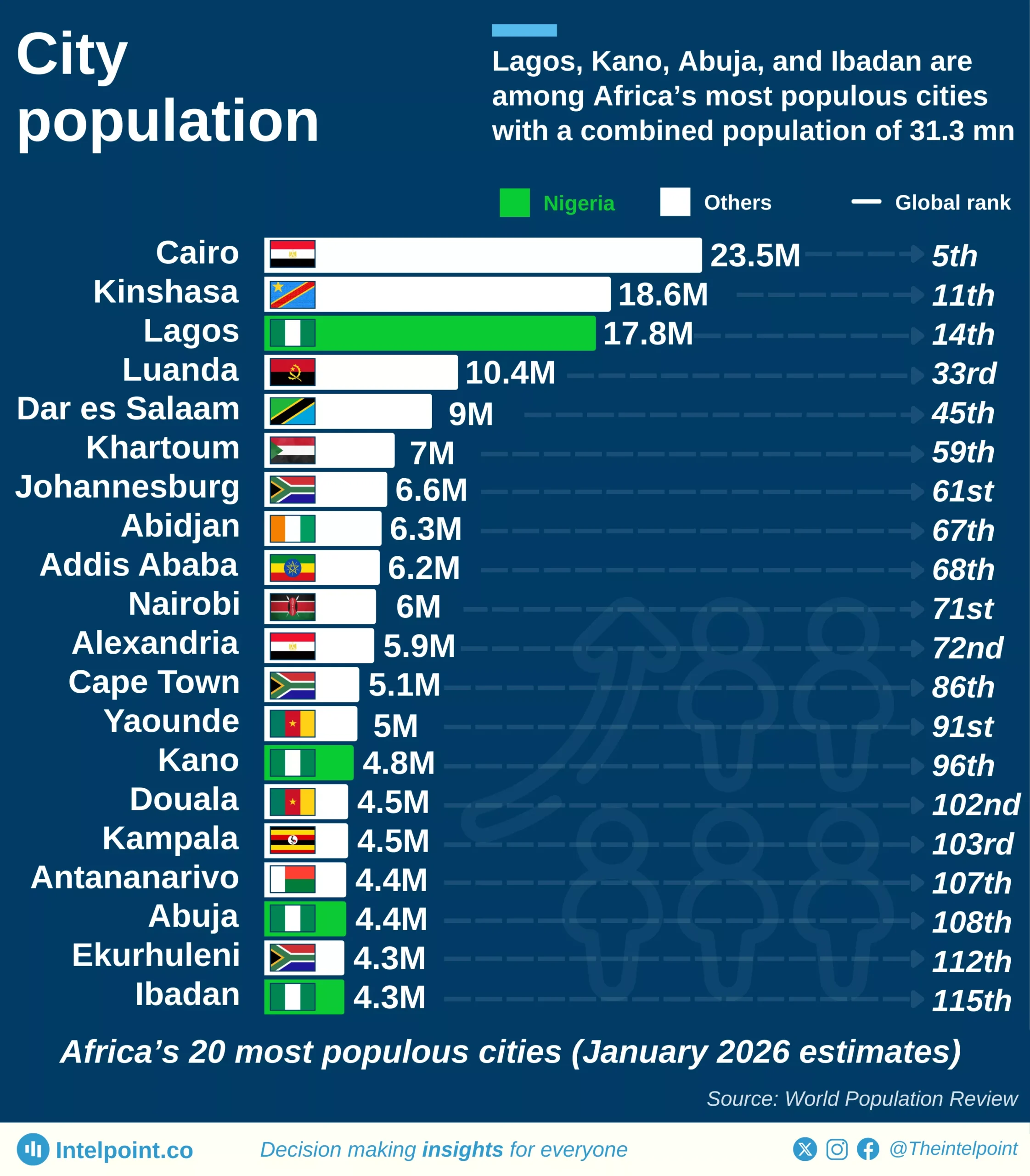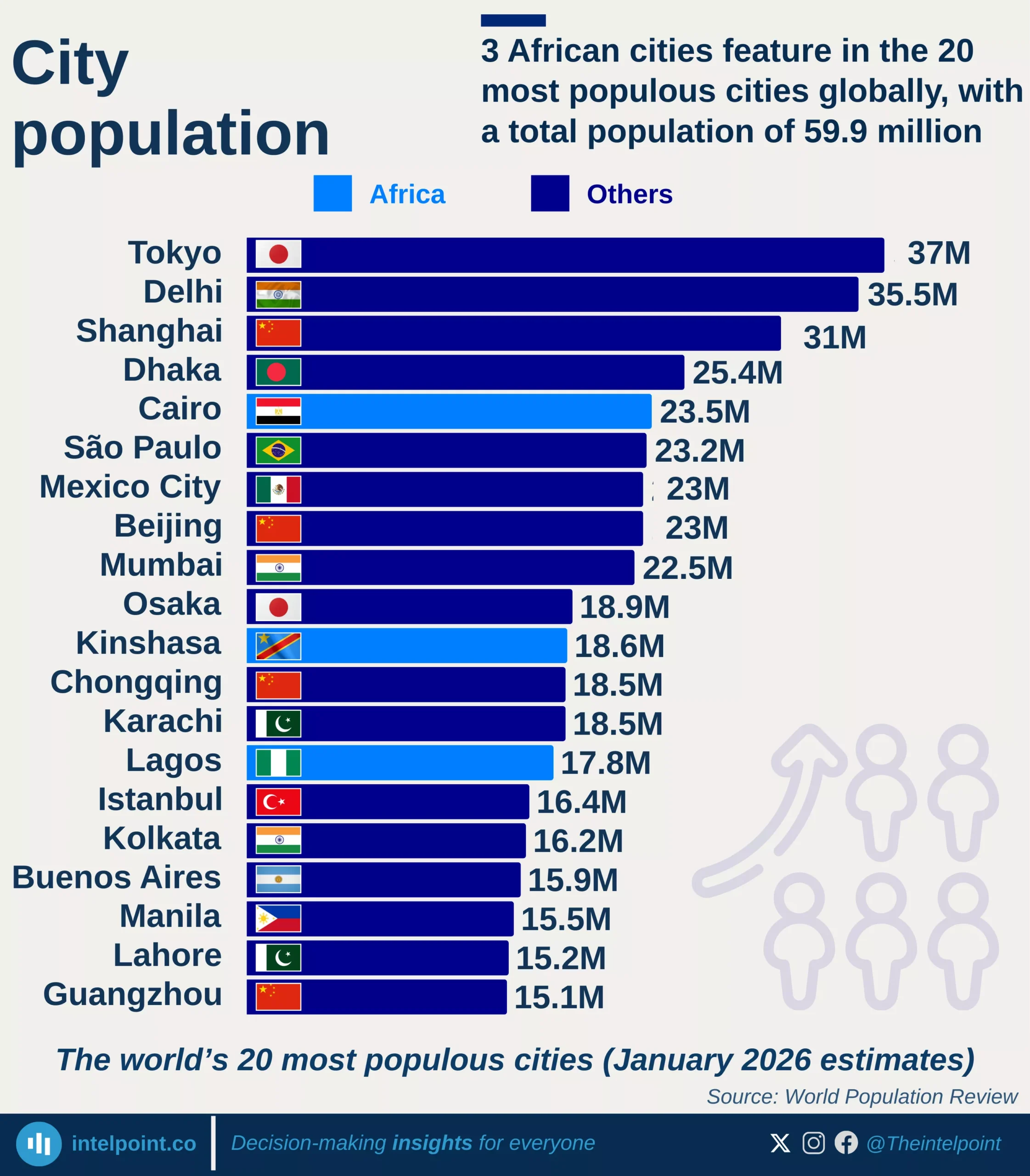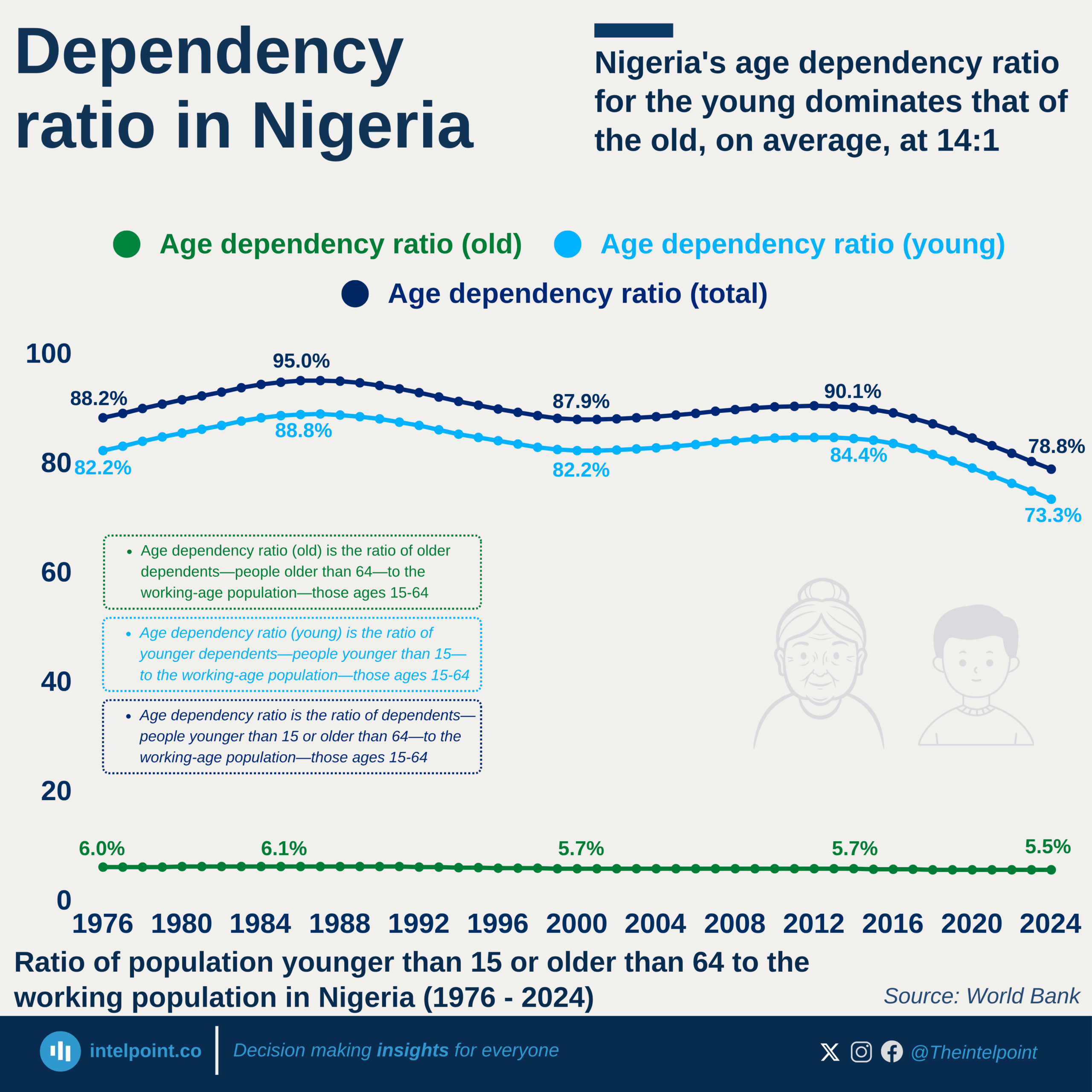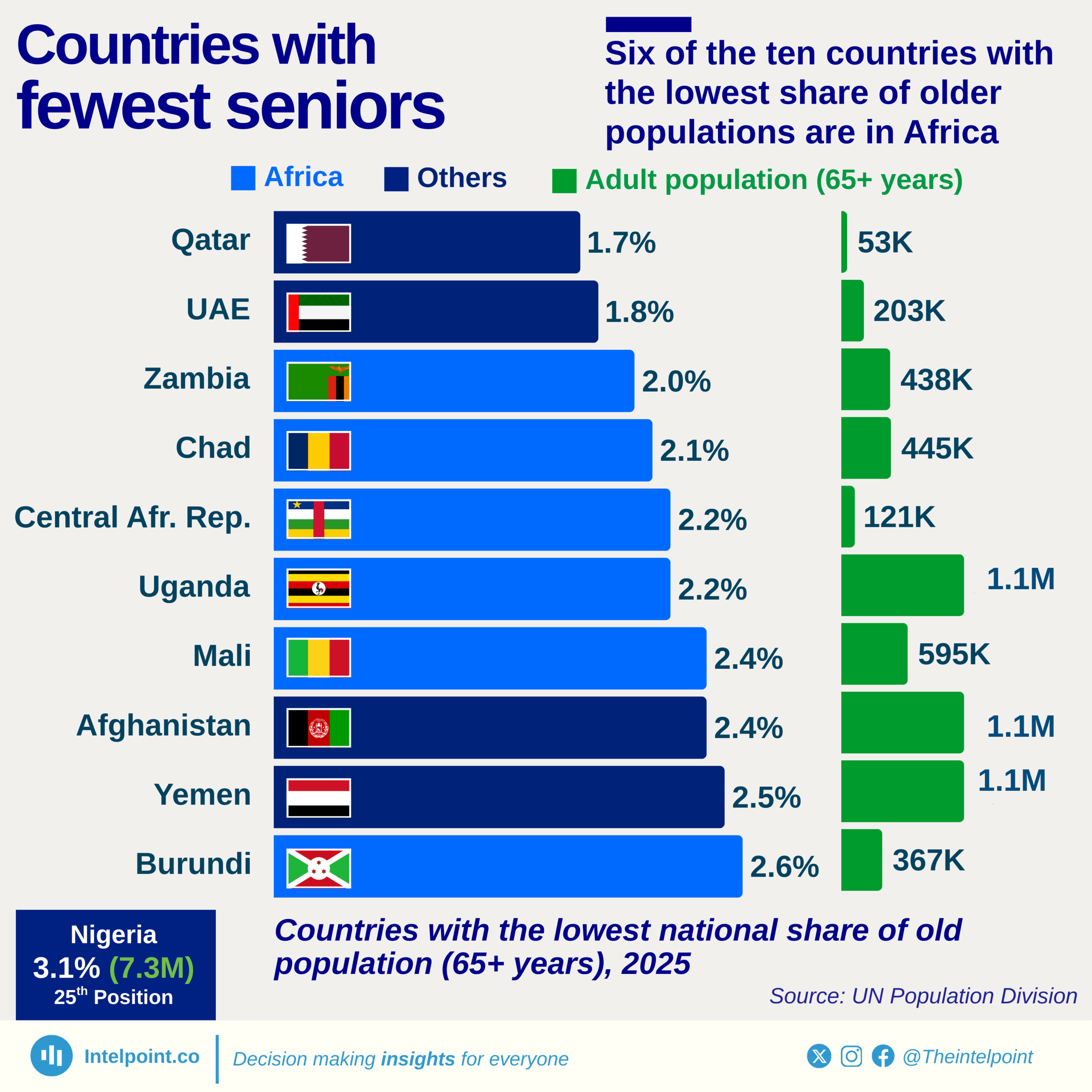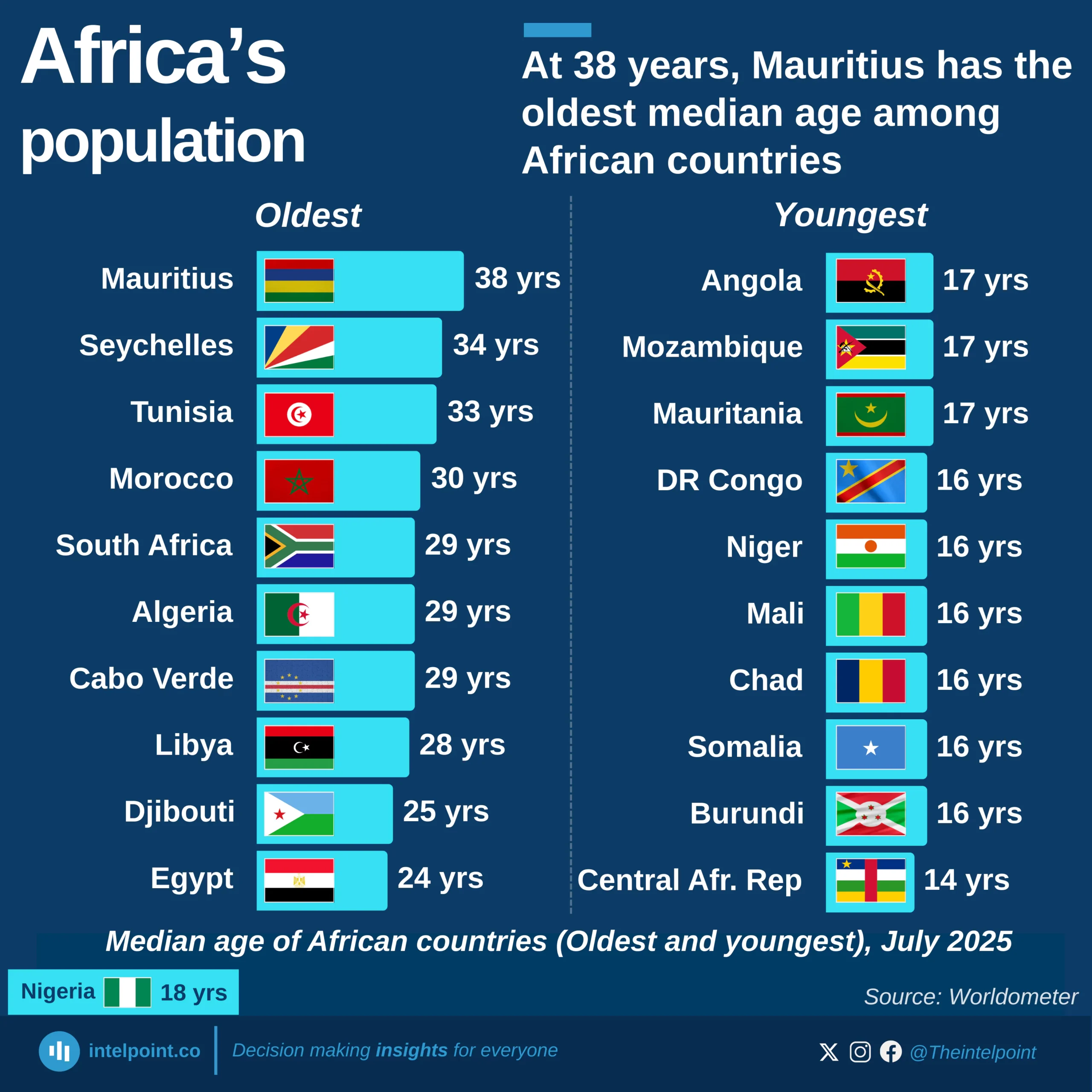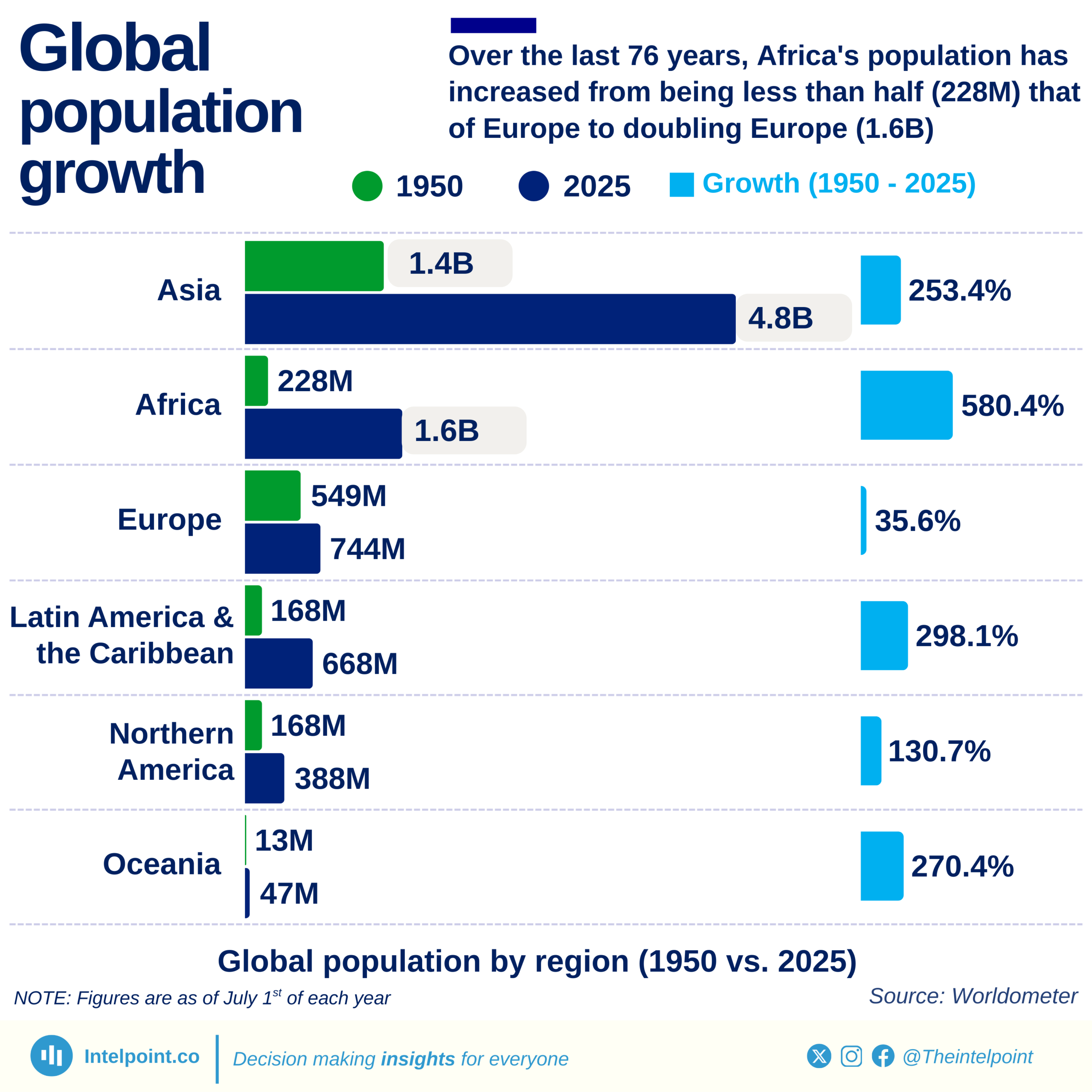Africa’s population reached 1.52 billion in the first half of 2025, with a striking distribution range across its five regions. Eastern Africa leads as the most populous region with 500.7 million people (33.0%), followed by Western Africa with 456.3 million (30.1%). Combined, these two regions account for more than 63% of the continent’s entire population, highlighting their demographic weight and influence.
Northern Africa holds 272.1 million people (18.0%), while Central Africa has 212.9 million (14.1%). Southern Africa is the least populous, with 73.1 million residents, making up just 4.8% of Africa’s total population. These differences reveal not only where most Africans live but also hint at where demographic pressures and opportunities could be most pronounced in the coming decades.
